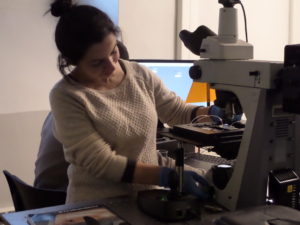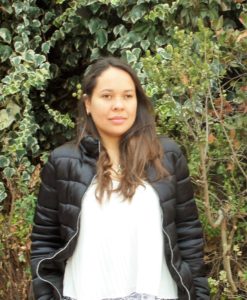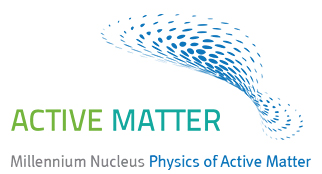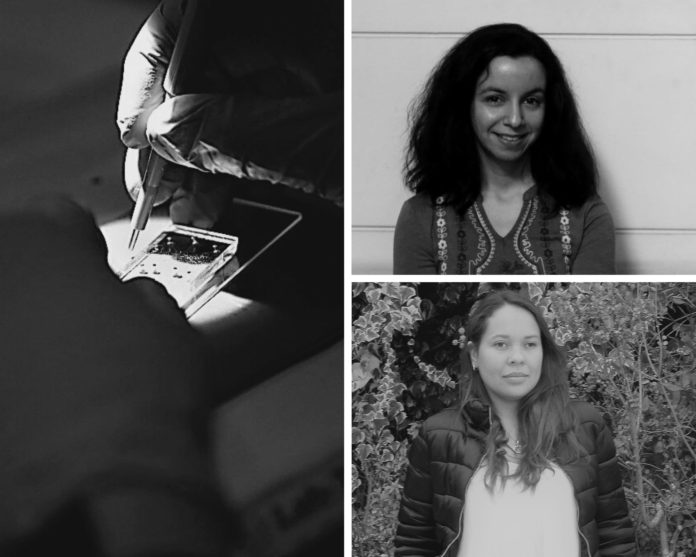María Luisa Cordero, Alternate Director of the Millennial Nucleus Physics of Active
Matter of the DFI-DFCM of the University of Chile, got the Regular Fondecyt 2021, while Andrea Villa, postdoctoral researcher of the Nucleus, got the Postdoctoral Fondecyt 2021. The University of Chile achieved a total of 155 selected initiatives, positioning itself among the leading institutions in the national awarding of both contests.
To expand the research in biological motors is the aim of the project. María Luisa Cordero –
Doctor in Physics, Alternate Director of the Millennial Nucleus Physics of Active Matter, and
academic of the DFI-FCFM of the University of Chile- uses bacteria confined in water drops to
manipulate the direction in the movements of the drop. With this study, she won the Regular
Fondecyt 2021 along with 590 more projects awarded with the national fund of science,
according to ANID (Spanish acronym for National Research and Development Agency).
María Luisa Cordero, an academic of the Department of Physics of the Faculty of Physical and Mathematical Sciences of the University of Chile, has been working on the construction of a
biological motor confining thousands of bacteria in water drops. Until now, it has been demonstrated that bacteria can move the drop in which they are inserted (which is known as biological model). Now, the aim is to control the direction of the movement, a fact that could have an important impact in biotechnology and medicine. “what I’m proposing is to expand the research that we have been doing until now with biological motors. The idea is to have these water drops filled with bacteria and make bacteria move the drop in a defined direction. I want to break the spatial symmetry, whether with a rough substrate, with a chemical gradient (like oxygen) or with an external magnetic field that can direct the motion of the drops wherever I want,” Cordero says.
 The research titled “Caption of energy from active matter” is framed in the work that national and international experts in biophysics are performing in bacterial communities and microswimmers physics. This investigation will combine biological methods for bacterial culture and observation, microfluidic techniques for emulsification tools and fluid mechanics, and data analysis statistics.
The research titled “Caption of energy from active matter” is framed in the work that national and international experts in biophysics are performing in bacterial communities and microswimmers physics. This investigation will combine biological methods for bacterial culture and observation, microfluidic techniques for emulsification tools and fluid mechanics, and data analysis statistics.
The applications are multiple. The drops fed with bacteria can generate fabrics of movement able to produce, transport, and deliver proteins or enzymes that are useful for industrial and medical applications. “Bacteria are often used in biotechnology to produce enzymes or proteins of industrial and medical interest. So, what we could do is to encapsulate bacteria in a drop, so, at the same time, they can produce and transport proteins to the place they are required,” explains.
In the Regular Fondecyt, the University of Chile obtained 28 initiatives adjudicated for the Faculty of Physical and Mathematical Sciences (María Luisa Cordero among them). This last faculty led a total of 100 projects adjudicated to this house of studies.
Postdoctoral Fondecyt
Physics and bacteria are also the center of the investigation of Andrea Villa, Doctor in Physics from the Venezuelan Institute for Scientific Research (IVIC) and postdoctoral researcher of the Millennium Nucleus Physics of Active Matter.
“Transport phenomena in bacterial suspensions” is the research title that won the Postdoctoral Fondecyt 2021. With it, she seeks to contribute to the development of a general theory for bacterial suspensions.
 In her project, she raises to study analytically and numerically the transport properties of the
In her project, she raises to study analytically and numerically the transport properties of the
bacterial suspension, developing diverse models. “Through the proposed models, we will be able to characterize the diffusive transport, as well as the directed transport due to a chemical signal.
These mechanisms are easily measurable experimentally, besides, they are of fundamental physic interest in the active matter area and can be used in practical developments,” says Villa.
One of the practical developments that are hoped by the postdoctoral researcher, is to provide statistical meters that allowed to determine the behaviors of bacterial suspensions without the necessity of numerous experimental studies. “I hope that our project can be enlightening in the study of bacterial suspensions and fill the existent gap in the literature about this subject,” says Villa.
The Project has important applications since it could help to explain cellular behaviors that could lead to the diagnosis of diseases, as well as new solutions and challenges in the ecology area.
The Postdoctoral Fondecyt 2021 contest was led in the University of Chile by the Faculty of
Physical and Mathematical Sciences with 12 projects selected (Andrea Villa among them), of a total of 55 adjudicated projects from this house of studies that led the adjudications at a national level.


